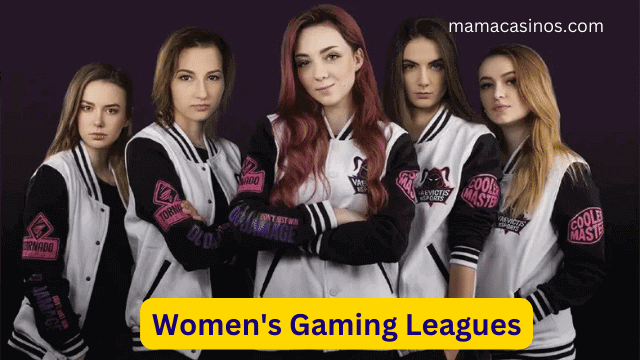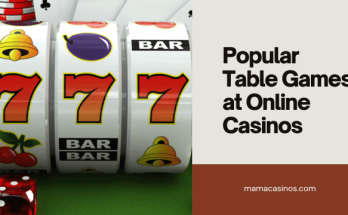As the gaming industry continues to grow at an unprecedented rate, it’s becoming increasingly important to create safe spaces for underrepresented groups. Women have long been a minority in the gaming community, facing sexism and harassment at every turn. However, in recent years, there has been a surge in the popularity of women’s gaming leagues, providing an opportunity for female gamers to connect, compete, and thrive. In this article, we’ll explore the world of women’s gaming leagues and their impact on the industry.
The History of Women’s Gaming Leagues
Women’s gaming leagues are not a new concept. In fact, women have been organizing gaming tournaments and events for decades. However, it wasn’t until the early 2000s that women’s gaming leagues started gaining traction. One of the first women’s gaming leagues was the PMS Clan, founded in 2002 by a group of female gamers who wanted to create a safe space for women in the gaming community. The PMS Clan quickly grew in popularity and inspired other women to create their own gaming leagues.
The Rise of Women’s Gaming Leagues in the Current Era
In recent years, women’s gaming leagues have experienced a resurgence in popularity. This can be attributed to several factors, including the growing awareness of sexism and harassment in the gaming community and the increasing number of women in the industry. Women’s gaming leagues provide a much-needed space for female gamers to connect, compete, and support each other.
One of the most popular women’s gaming leagues is the Women’s Esports League (WEL). Founded in 2017, the WEL is dedicated to providing opportunities for female gamers to compete at a professional level. The league has partnerships with major gaming companies, such as Tencent and Razer, and offers cash prizes for its tournaments.
The Benefits of Women’s Gaming Leagues
Women’s gaming leagues offer several benefits to their participants and the industry as a whole. These include:
Inclusivity and Diversity
Women’s gaming leagues create a safe and welcoming space for female gamers, promoting inclusivity and diversity in the industry. By providing a platform for underrepresented groups, women’s gaming leagues help to combat the systemic barriers that prevent women from fully participating in the gaming community.
Empowerment and Mentorship
Women’s gaming leagues provide opportunities for female gamers to connect with each other, share their experiences, and support each other. This sense of community and mentorship can be empowering for women who may have felt isolated in the gaming community.
Opportunities for Professional Development
Women’s gaming leagues provide opportunities for female gamers to develop their skills and compete at a professional level. This can lead to career opportunities in the gaming industry, which is traditionally male-dominated.
Challenges and Criticisms of Women’s Gaming Leagues
Despite the many benefits of women’s gaming leagues, there are also challenges and criticisms to consider. These include:
Tokenism and Segregation
Some critics argue that women’s gaming leagues are a form of tokenism and segregation, creating a separate space for women instead of promoting inclusivity in the industry as a whole. While this is a valid concern, it’s important to recognize that women While this is a valid concern, it’s important to recognize that women’s gaming leagues serve a specific purpose in providing a safe and supportive space for female gamers. Additionally, many women’s gaming leagues work towards promoting inclusivity in the industry as a whole through advocacy and outreach efforts.
Lack of Visibility and Funding
Women’s gaming leagues often struggle with a lack of visibility and funding compared to their male counterparts. This can make it difficult for these leagues to grow and reach a wider audience. However, with the increasing awareness and support for women’s gaming leagues, this is starting to change.
Conclusion
Women’s gaming leagues are a vital part of the gaming industry, providing a much-needed space for female gamers to connect, compete, and thrive. While there are challenges and criticisms to consider, the benefits of women’s gaming leagues are clear: they promote inclusivity and diversity, provide empowerment and mentorship, and offer opportunities for professional development. As the gaming industry continues to grow and evolve, it’s important to ensure that women are not left behind.
FAQs
1.Are women’s gaming leagues only for professional gamers?
No, women’s gaming leagues are open to all female gamers, regardless of their skill level.
2.Can men participate in women’s gaming leagues?
No, women’s gaming leagues are specifically designed for female gamers. However, there are many mixed-gender gaming leagues available for both male and female gamers.
3.Are women’s gaming leagues only for competitive gaming?
While many women’s gaming leagues focus on competitive gaming, there are also leagues that focus on casual gaming and community building.
4.How can I get involved in a women’s gaming league?
There are many women’s gaming leagues available, both online and offline. You can search for leagues in your area or online and reach out to the organizers for more information.
5.How can I support women’s gaming leagues?
You can support women’s gaming leagues by participating in their events, donating to their organizations, and advocating for greater inclusivity and diversity in the gaming industry.
6.Is there a female esports team?
Yes, there are many female esports teams that compete in various games and tournaments. These teams are typically composed of skilled female gamers who work together to compete against other teams. Some examples of popular female esports teams include Dignitas Female, CLG Red, and Besiktas Female. These teams are often sponsored by organizations or companies that provide support and resources for their training and competition. Additionally, there are also many all-female tournaments and leagues that these teams can participate in, such as the Women’s Esports League and the Female Legends League.
7.Can a girl join esports?
Absolutely! Girls can definitely join esports and compete at a high level just like their male counterparts. Esports is a space where skill and dedication are the most important factors, not gender. There are many female esports players and teams that have achieved great success in various games and tournaments. However, it’s important to note that women in esports often face unique challenges such as gender discrimination and harassment. This is why there is a growing movement to support and promote women in esports, through initiatives such as women’s gaming leagues and diversity and inclusion programs. So if you’re a girl interested in esports, don’t let anyone tell you that you can’t do it! With hard work, passion, and support, you can achieve your goals and thrive in the esports industry.
8.Is there a female esports team?
Yes, there are many female esports teams that compete in various games and tournaments. These teams are typically composed of skilled female gamers who work together to compete against other teams. Some examples of popular female esports teams include Dignitas Female, CLG Red, and Besiktas Female. These teams are often sponsored by organizations or companies that provide support and resources for their training and competition. Additionally, there are also many all-female tournaments and leagues that these teams can participate in, such as the Women’s Esports League and the Female Legends League.
9.Who is the highest paid female gamer?
The highest paid female gamer as of 2021 is probably Sasha “Scarlett” Hostyn, a Canadian professional StarCraft II player. According to esports earnings, Scarlett has earned over $350,000 in prize money over the course of her career. She is widely regarded as one of the best StarCraft II players in the world, regardless of gender. Other highly paid female gamers include Li “Liooon” Xiaomeng, a Chinese Hearthstone player who won the Hearthstone Global Finals in 2019, and Katherine “Mystik” Gunn, a Canadian Halo player who has won multiple world championships. While female gamers still earn less on average than male gamers, the growing support for women in esports is helping to close this gap and provide greater opportunities for female gamers to achieve success and recognition in the industry.
10.Is there any girl in esports in India?
11.Who is the Indian female esports player?
There are several Indian female esports players who have made a name for themselves in the industry. Some notable examples include:
- Kavya “m4n0w4r” Khanduja – Kavya is a professional Valorant player for the team Velocity Gaming. She is one of the top female esports players in India and has competed in several major tournaments.
- Ankita “ANKIITA” Dash – Ankita is a professional PUBG Mobile player who has represented India in international tournaments. She is known for her skills and leadership as the captain of the team “4Ace Esports”.
- Trisha “Phoenix” Mallick – Trisha is a professional CS:GO player for the team Global Esports. She has competed in several tournaments and is one of the rising stars of Indian esports.
- Aayushi “Aayu” Kishore – Aayushi is a professional Dota 2 player for the team Wipeout Gaming. She is one of the few female Dota 2 players in India and has competed in several major tournaments.
These are just a few examples of the many talented female esports players in India who are breaking barriers and making a mark in the industry.
12. What are female gamers called?
There are also several subcultures within gaming that have their own terms for female gamers. For example, in the fighting game community, female gamers are sometimes referred to as “frag dolls” or “frag dolls femme fatales”. In the world of esports, female gamers who play at a professional level are sometimes referred to as “pro gamers” or “esports athletes”, just like their male counterparts.
It’s worth noting that the use of gendered terms to refer to female gamers can be a contentious issue. Some people argue that using terms such as “gamer girls” or “girl gamers” can perpetuate the stereotype that gaming is a male-dominated activity, while others argue that it’s simply a matter of personal preference. Ultimately, the most important thing is to treat all gamers with respect and inclusivity, regardless of their gender identity.




